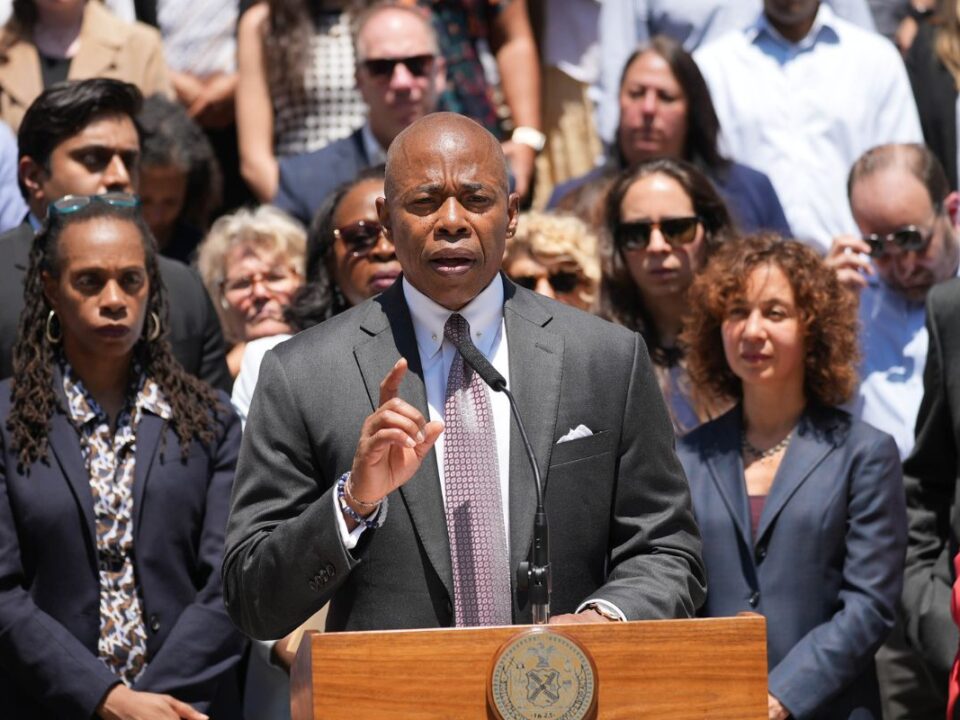People are looking at the mayor with the tilted head after he sided with police over the community over the DRAPOLLO Gate, where officers filmed every person as they exited the epic concert performance on Saturday, Jan. 21.
NYTimes journalist Jon Caramanica broke the story on Twitter, posting a picture with the caption, “NYPD video recording every person leaving the Drake Apollo show 🧐.”
here’s the video pic.twitter.com/xeCB96veU0
— Jon Caramanica (@joncaramanica) January 22, 2023
In rebuttal of their actions, the NYPD said the footage was going to be used for social media, despite not asking fans to sign image releases, according to The Gothamist,
“The officer depicted in the video is a Community Affairs officer involved with the 28th Precinct’s social media team,” read a statement from the police force. “The officer was taking video for an upcoming Twitter post that will highlight local community events. The video will not be utilized for any other reason.”
Will Owen, of the Surveillance Technology Oversight Project, an anti-surveillance and privacy rights group, wasn’t buying it.
“The NYPD’s use of a video recording device on Hip-Hop fans at a historic institution of Black performance in Harlem is highly concerning,” Owen said.
Adding, “This is yet another example of NYPD’s racist use of surveillance technology, following the department’s long legacy of targeting rap concerts. We’re deeply concerned facial recognition may have been involved, and demand the department destroy any footage it took. This is the latest proof that the city and state must ban its use at venues once and for all.”
On Monday, Jan. 23, Mayor Eric Adams addressed the issue at a news conference in the Bronx.
He said the pushback is coming from a few folks and not “everyday New Yorkers.”
He also said, “Thumbs up to that great captain,” referring to Captain Tarik Sheppard, who is over the 28th Precinct.
“And I encourage all of my commanding officers to be creative on how we engage with our residents,” the mayor continued to say, “That was a safe event,” and adding, “Those who are naysayers find reasons to complain about everything. That’s not reality. Let them keep complaining.”
Jeffrey Fagan, a Columbia University law professor who is an expert on policing, took issue with this concept of safety— arguing seeing officers taping them probably made them feel the opposite.
“I doubt anyone there felt safer because the NYPD was creating a digital record of their time at the Apollo to hear a Black music artist,” he said.
